Sony WH-1000XM5 vs. Bowers & Wilkins Px7 S2e: Which noise-canceling headphones win?
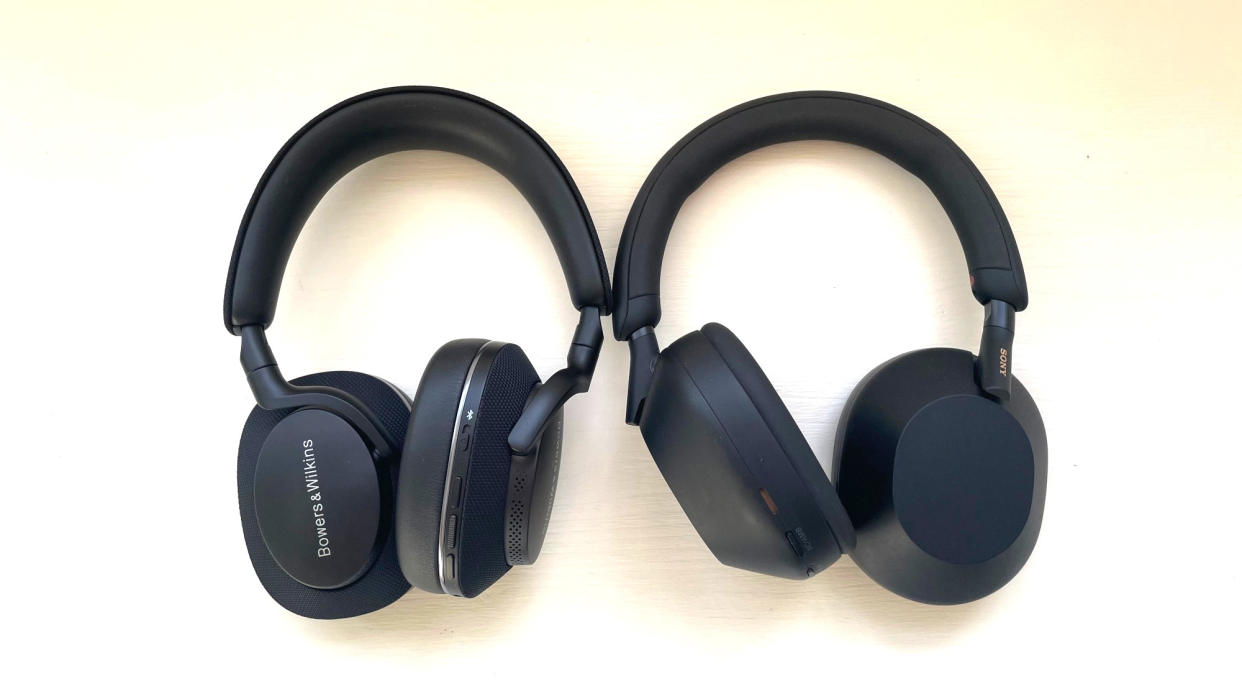

Bowers & Wilkins Px7 S2e
This is the second update to Bowers & Wilkins entry-level series in 18 months. The new version benefits from a re-tuned acoustic architecture with 24-bit digital signal processing inspired by its flagship Px8 sibling. They are beautifully constructed, bringing bags of style and a low profile design that many will love.
For
Great sound
Low-profile design with smart styling
Effective noise canceling
Against
No touch controls
Noise canceling isn't as good as rivals
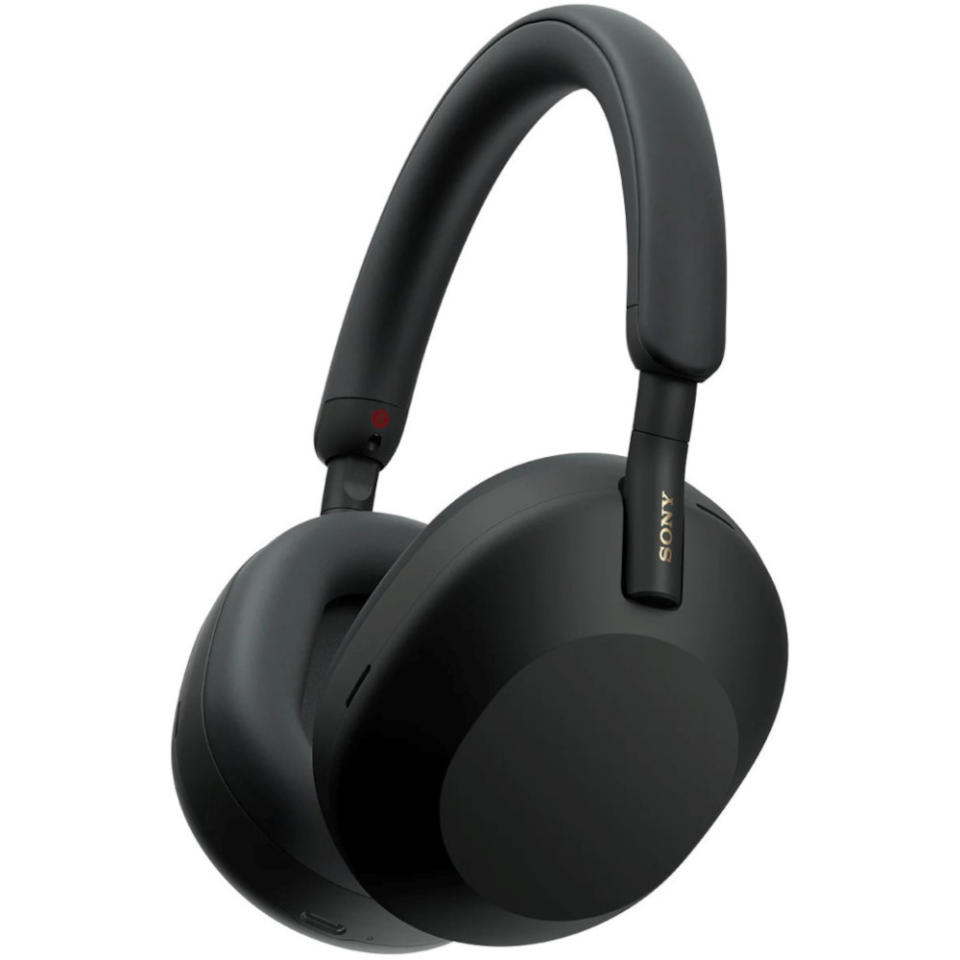
Sony WH-1000XM5
Sony's flagship headphones are stacked with features, and the XM5 and are among one of the best noise-canceling headphones we've tested. They sound superb, and the 30-hour battery life (with ANC) is strong. Everything from the touch controls to the Headphones Connect app is well thought out and seamlessly integrated.
For
Articulate and engaging sound
Great control options
Impressive noise-cancelation
Long battery life
Stellar call quality
Against
Redesign and eco credentials ups the price
Gets hot around the ears during longer listening
This Sony WH-1000XM5 vs. Bowers & Wilkins Px7 S2e face-off compares two 4.5-star rated headphone rivals. They're priced exactly the same, so if you're looking to make a buying decision on the best over-ear headphones that straddle the line between mainstream affordability and luxury accessory, this face-off will tell you everything you need to know.
While the popular Sony WH-1000XM5 have been available since mid-2022, the Bowers & Wilkins Px7 S2e have only been around a few months. The Sony headphones continue to be rated highly for their balance of sound quality that offers high-quality LDAC support for compatible playback devices, superb ANC performance and more features than any other headphone model at the price.
But how do they compare to the similarly priced Bowers & Wilkins Px7 S2e?
As the Bowers & Wilkins Px7 S2 successor, the 'e' version evolves the entry level series with a re-tuned acoustic performance and 24-bit digital signal processing (DSP). The headphones retain their masterful design and luxury feel but without treading on the toes of the company's sumptuous high-end Px8 flagship.

Despite their identical price tag, the B&W Px7 S2e and Sony WH-1000XM5 headphones are aimed at slightly different kinds of wearers. Both are noise cancelers, but on the one hand you have the Bowers & Wilkins headphones aimed at consumers who care as much about style as they do sound quality, while on the other you have the Sony headphones that strike a balance between overall performance, features and mass market appeal.
In this face-off I weigh up the pros and cons of two of the best over-ear headphones I've tested at the price. Read on to discover the differences, and which are the best over-ear headphones for your needs.
Sony WH-1000XM5 vs. Bowers & Wilkins Px7 S2e: Specs compared
Sony WH-1000XM5 vs. Bowers & Wilkins Px7 S2e: Price & availability

The Bowers & Wilkins Px7 S2e wireless over-ear active noise-canceling headphones are exactly the same price as the previous S2 version. The 'e' version went on sale on September 19, 2023 and are available to buy through the Bowers & Wilkins website priced at $399 / £379 (approx. AU$599). They are also available via online retailers and come in anthracite black, cloud gray, ocean blue, and forest green color options.
They're pitched exactly the same as the Sony WH-1000XM5 headphones that launched in May 2022. By comparison, the refreshed design and eco credentials bumped up this next-gen flagship by $50 over the model they replaced and are available in black, blue or silver color options. See how they compare in our Sony WH-1000XM5 vs. Sony WH-1000XM4 face-off.
In terms of overall cost, the Sony headphones are the better value option for most people as they offer a mind-blowing number of features in an attractive package.
Winner: Sony WH-1000XM5
Sony WH-1000XM5 vs. Bowers & Wilkins Px7 S2e: Design
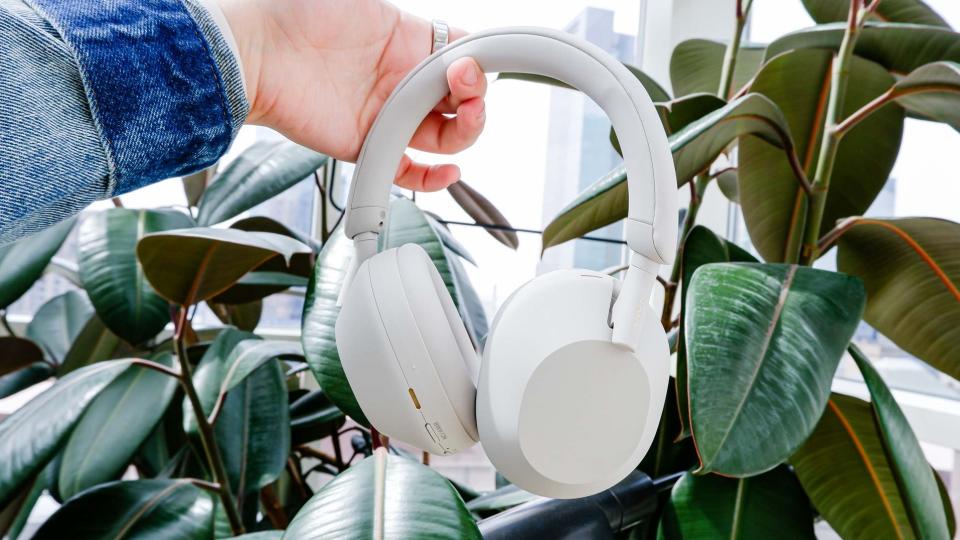
Bowers & Wilkins' Px7 S2e have more of a luxury feel about them, and the 'evolved' version exudes an air of panache and durability that's lacking from the Sony WH-1000XM5. Both are nicely constructed, but I prefer the Bowers & Wilkins' low profile headphone design. Clamping force is a bit higher but they feel more durable, and I like the wider headband on the B&Ws. They also feel more protected from scuffs and scratches. For example, my Sony WH-1000XM5 headphones have lost their newness and are peppered with finger marks, whereas the textured outer casing of the B&W feels less plasticky and more resistant to everyday signs of wear.
Winner: Bowers & Wilkins Px7 S2e
Sony WH-1000XM5 vs. Bowers & Wilkins Px7 S2e: Controls
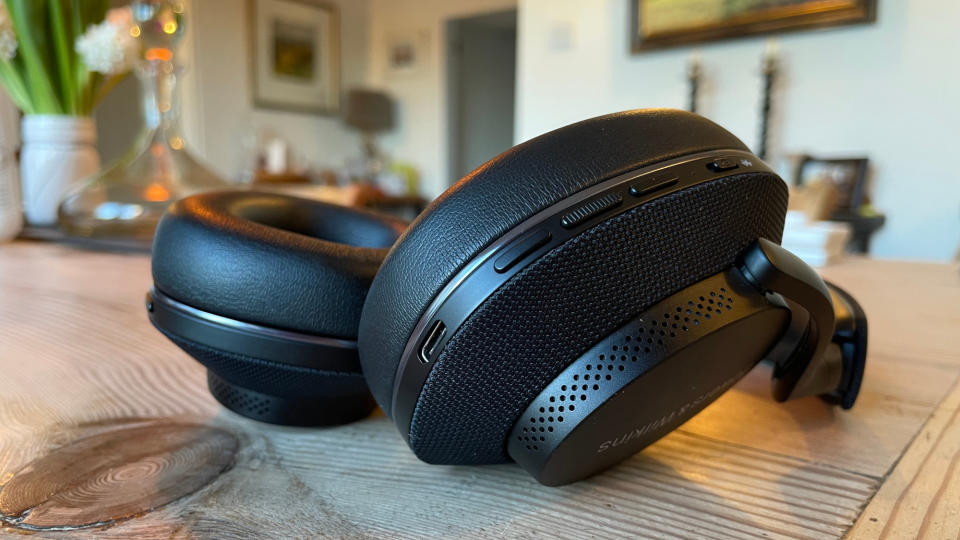
The Bowers & Wilkins headphones don't have touch controls but use physical control buttons. On the face of it this might seem like an oversight, but I like the physical buttons on the right earcup and the reassurance I get from the tactile feedback of pressing a function control. Additionally, there's a quick action button on the left earcup that give quick access to Environment Control (ANC, Transparency, Off) or can be assigned to activate Voice Assistant.
Touch controls are on the right earcup of the Sony to navigate playback commands. Wear detection is supported on both, but you have to activate it on the Bowers & Wilkins. The left earcup on the Sony has a physical button that allows you to cycle through your noise-canceling options.
Winner: Tie
Sony WH-1000XM5 vs. Bowers & Wilkins Px7 S2e: Sound quality

When it comes to sound quality, the Bowers & Wilkins Px7 S2e and Sony WH-1000XM5 deliver different but some of the finest sound at the price. Although your preference for one or the other will come down to personal taste, the Bowers & Wilkins Px7 S2e put in a great performance if you seek dynamic low frequencies and enjoy listening to rich, engrossing sound. The Music app provides EQ adjustments for bass and treble, but that's it.
The Sony WH-1000XM5 headphones have a little more openness to their sound, although I'd argue that low frequencies aren't quite as incisive as they are on the Px7 S2e. The Sony's have a stronger presentation across a wide range of music styles, and the multiband EQ control allows you tinker with the frequency response to tailor the sound exactly to your liking.
Winner: Tie
Sony WH-1000XM5 vs. Bowers & Wilkins Px7 S2e: Active noise canceling

ANC control on the Bowers & Wilkins is limited to either On or Off. Just like the previous-gen model, there's no ANC level adjustment or adaptive modes.
While performance is good and more than satisfactory for routine commutes, some external sounds manage to get through. Overall, they're more than adequate for casual listening without too much intrusion from external sounds, but don't expect the pool of silence that some headphones give when traveling by train or by airplane.
On the other hand, Sony's ANC ranks highly as one of the best noise-canceling headphones on the market right now. Without leaving any trace of how hard the ANC circuitry is working, the WH-1000XM5 banish pretty much all external sound and leave a nice dark background against which your music can do its thing. If noise canceling is important to you, the Sonys are the better performing model.
Winner: Sony WH-1000XM5
Sony WH-1000XM5 vs. Bowers & Wilkins Px7 S2e: Battery life
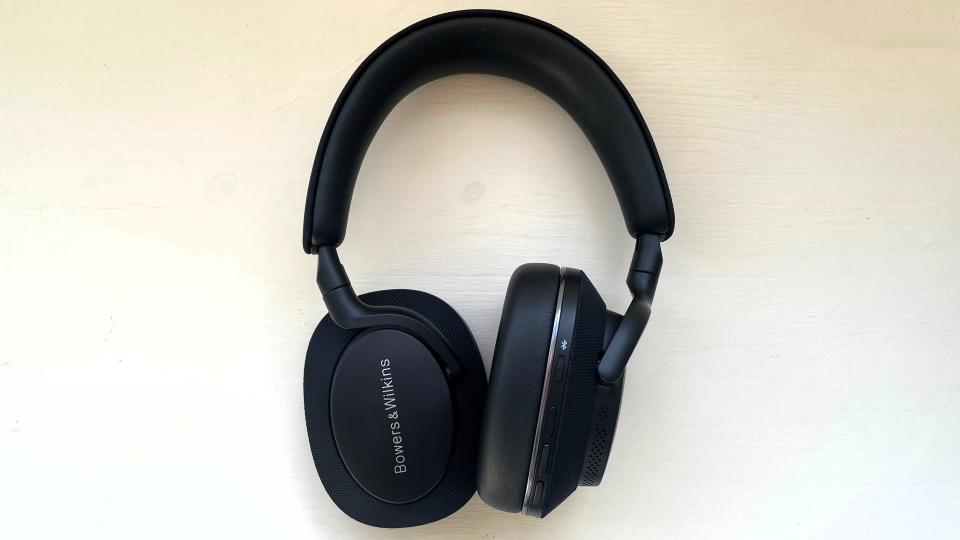
Both models have decent battery life via USB-C port. Charging cables are supplied for both models.
Bowers & Wilkins says that the Px7 S2e have a best-case battery life of 30 hours, while a full charge is expected to take around 2 hours. A 15 minute quick charge should be good for 7 hours of playback.
The WH-1000XM5 are good for 30 hours between charges if you keep active noise-cancelation switched on, and that will rise to as much as 40 hours if you turn it off. They take a rather leisurely 3.5 hours to reach a full charge, but give an hour’s-worth of power after 10 minutes or so. The XM5 are also USB-PD (Power Delivery)-compatible, and charged in this way can get three hours of power after just three minutes.
In terms of overall playback times, the WH-1000XM5 headphones come out on top.
Winner: Sony WH-1000XM5
Sony WH-1000XM5 vs. Bowers & Wilkins Px7 S2e: Verdict
While the updated Bowers & Wilkins are clearly beaten by the Sony headphones in terms of features, battery life and noise-canceling performance at the price, the Px7 S2e are the better choice over the WH-1000XM5 if dynamic sound and styling matter most to you. Additionally, the Bowers & Wilkins Px7 S2e headphones are one of the few models I've seen that lavish as much care and attention to detail on their premium look and feel as they do on their sound at the price.
Ultimately though, the Sony WH-1000XM5 headphones are the more compelling set of cans overall. They are a more versatile option and have one of the best user experiences I've ever encountered from a headphones app. They also sound great, and the engaging audio performance with high-quality LDAC audio support will put a spring in the step of any owner.

